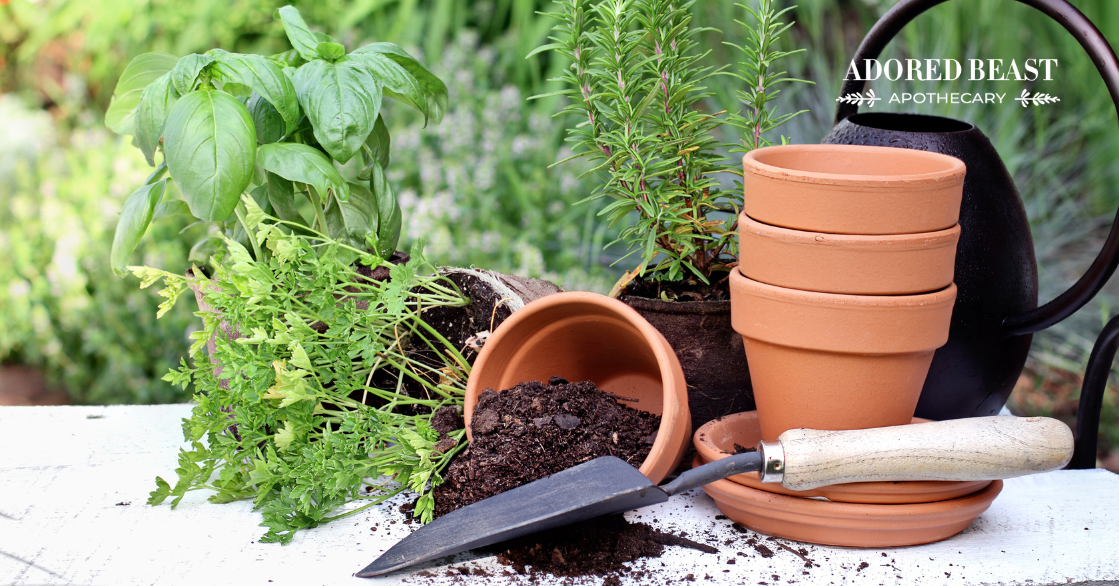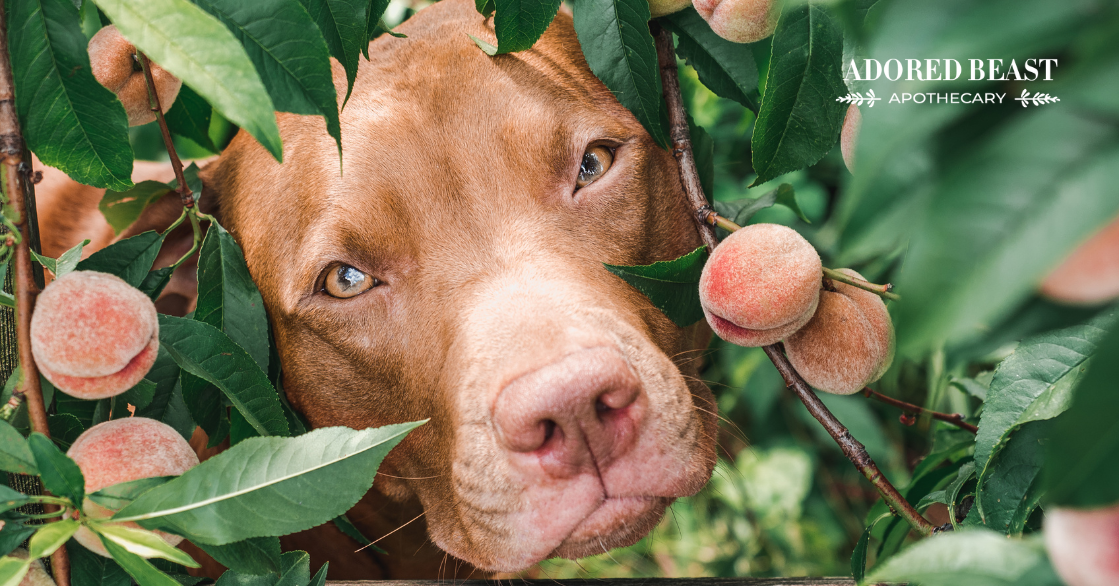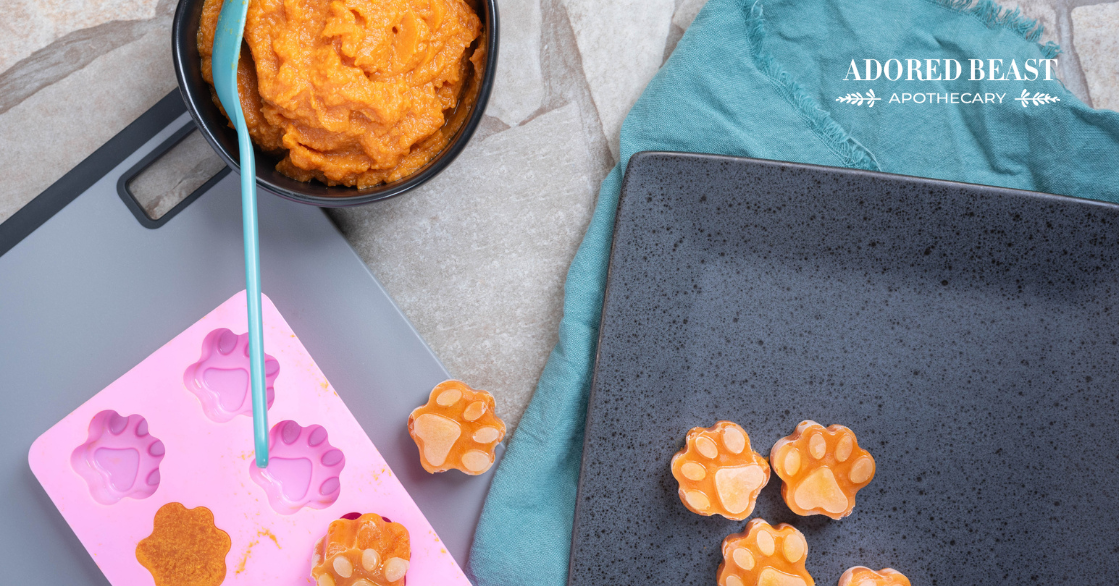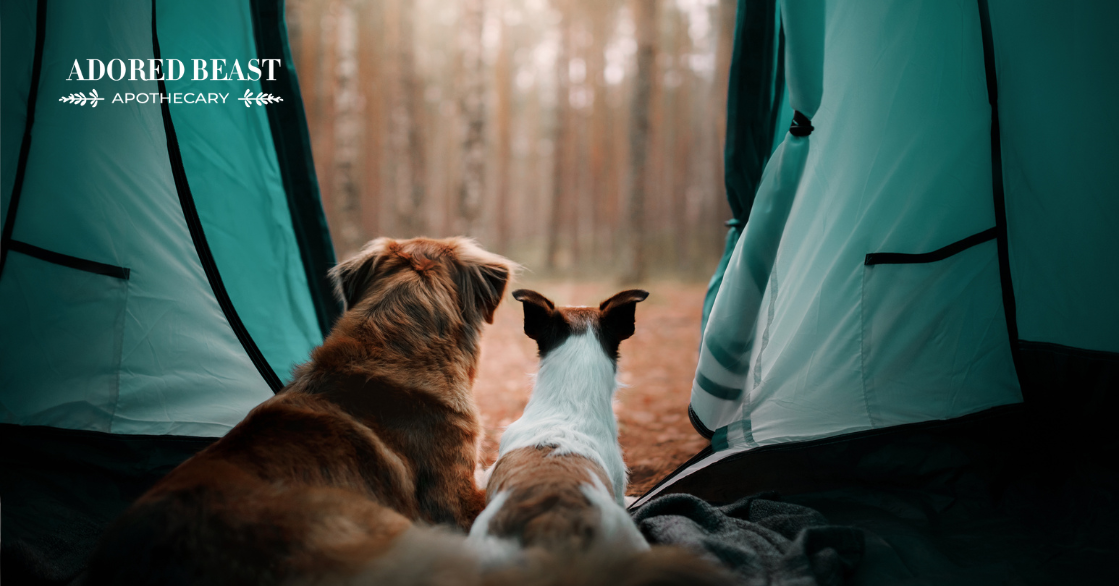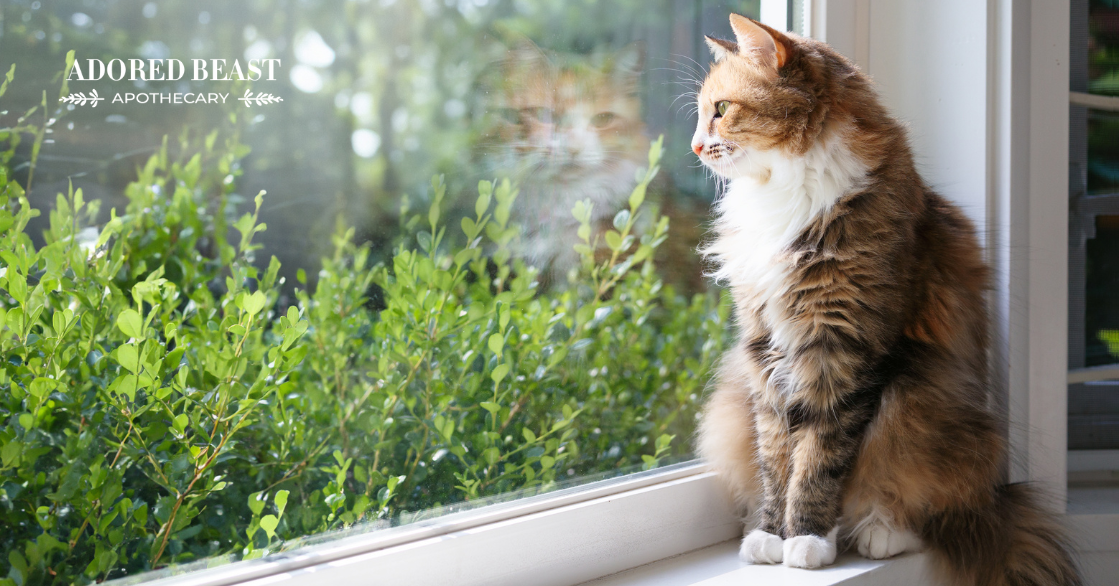If you’re a pet parent with a green thumb, building a pet safe herb garden can be a rewarding project. Not only does it provide a natural space for your pets to explore safely, but certain herbs can also offer health benefits for your furry friends.
Plus, there’s just something awesome about getting outside and putting your hands in the dirt!
It’s time to get out in nature and let Mother Nature’s wisdom help improve our health and wellness – ours and our animals’.
So, what should you include in your pet safe herb garden? Let’s get digging!
What to Plant in Your Pet Safe Herb Garden
Here are some of our go-to choices for planting in your pet safe herb garden:
1. Basil
- Benefits: Basil is known for its anti-inflammatory properties and can help ease arthritis pain in pets. It’s also rich in antioxidants, which support overall health. It can even help prevent cellular damage, calm your anxious dog, and ease arthritis pain.
- Usage: Add fresh basil leaves to your pet’s food in small amounts or brew as a tea for topical application to soothe insect bites.
- Safe for dogs and cats
2. Parsley
- Benefits: Parsley is excellent for freshening breath and supporting kidney health due to its diuretic properties. It’s also rich in vitamins A and C.
- Usage: Finely chop and sprinkle a small amount over your pet’s meals.
- Safe for dogs
3. Thyme
- Benefits: Thyme has antiseptic and antibacterial properties, making it useful for treating minor cuts and abrasions. It also aids in digestion and can help relieve coughs.
- Usage: Infuse in hot water to make a mild tea, which can be used as a rinse or added to your pet’s drinking water. Start slow, and only feed in small amounts. Too much can lead to digestive upset, so take it easy.
- Safe for dogs and cats
4. Rosemary
- Benefits: Rosemary is a natural flea repellent and has anti-inflammatory and antioxidant properties. It can also improve digestion and circulation.
- Usage: Use fresh sprigs to make a rinse for your pet’s coat or add small amounts to their food. Avoid it with dogs with epilepsy/seizures.
- Safe for dogs and cats
5. Dill
- Benefits: Dill can help with digestive issues such as bloating and gas. It’s also known to support oral health and provides valuable nutrients and antioxidants.
- Usage: Add finely chopped dill to your pet’s food or brew as a tea for digestive support.
- Safe for dogs and cats
6. Cilantro
- Benefits: Cilantro is known to be detoxifying, so it can help rid the body of heavy metals. It is rich in vitamins and minerals, supports digestion, heart health, urinary health, and blood sugar levels. Yes, it’s good for more than just guacamole!
- Usage: Add a small amount, finally chopped to your pet’s food.
- Safe for dogs and cats
7. Chamomile
- Benefits: Chamomile is so versatile – it’s one of our very favourite herbs. It’s calming, has anti-inflammatory and anti-microbial properties, and helps with skin irritations and digestive issues.
- Usage: You can use ti internally and externally – there are lots of great directions at this post. Try to use a high quality, organic chamomile. we don’t recommend it for long-term internal use. Instead, simply use it when needed. Use caution with chamomile if your cat is on any of the following medications: warfarin, NSAIDs, or any sedatives.
- Safe for dogs and cats
8. Catnip
- Benefits: While catnip acts as a stimulant in cats, it typically acts as a sedative in dogs. It’s a good source of magnesium, vitamins C and E, tannins, and flavonoids. For some dogs, catnip can help with anxiety, improve sleep and act as a natural antiseptic.
- Usage: Sprinkle a small amount on your pet’s food, or let your kitty bat around a toy filled with it!
- Safe for dogs and cats
Pro Tip: If your animal is new to herbs, start small. Some pets love the taste, while others may need some coaxing. Never force it. And only work up to a small amount. You don’t want to overdo it – a little goes a long way.
Herbs to Avoid
While many herbs are beneficial, some can be toxic to pets and should be avoided:
- Onions: Onions can cause gastrointestinal upset and damage red blood cells, leading to anemia.
- Chives: Related to onions and garlic, chives can also cause gastrointestinal distress and hemolytic anemia.
- Mint: While peppermint can be soothing in very small amounts, large quantities can cause vomiting and diarrhea.
- Tarragon: Tarragon contains compounds that can cause mild toxicity in pets, including vomiting and diarrhea.
- Marjoram: Marjoram can cause gastric upset in dogs and may even slow the body’s blood-clotting mechanisms.
- Oregano: Oregano can cause stomach upset and low blood sugar.
Designing Your Pet Safe Herb Garden
- Location: Choose a sunny spot in your yard or create a windowsill herb garden if you live in an apartment. Ensure the area is secure to prevent pets from wandering off.
- Containers: Use pots or raised beds to grow your herbs. This helps control the soil quality and makes it easier to manage the garden.
- Soil and Watering: Use organic potting soil free of pesticides and fertilizers that could harm your pets. Water your herbs regularly, ensuring good drainage to prevent root rot.
- Safe Zones: Designate specific areas where your pet can explore without trampling your plants. Use barriers or fencing if necessary.
- Supervision: Always supervise your pets when they are in the garden to ensure they are not chewing on potentially harmful plants.
- Education: Teach your pets not to dig or chew in the garden. Positive reinforcement and training can help them understand the boundaries.
A pet safe herb garden is a fantastic way to combine your love of gardening with the well-being of your adored beasts. By choosing the right herbs and creating a safe environment, you can build a garden that contributes to your pets’ health and happiness.
Happy gardening!

